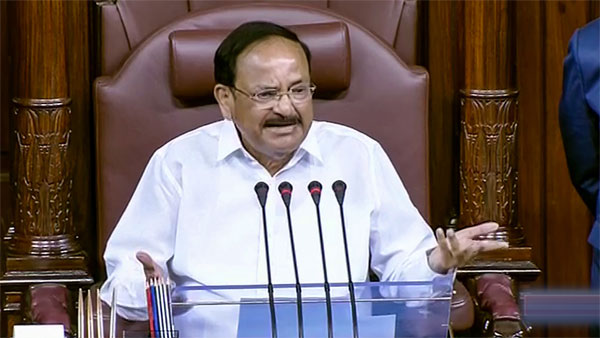
Rate Hike: Don’t expect long-term impact on housing sales, say developers
[ad_1]
Keeping the elevated inflation in mind, the RBI increased the repo rate by 50 bps on Friday, taking the policy rate above pre-Covid levels. This move is likely to make home loans dearer and impact housing sales to some extent.
Industry experts are of the view that in general, the increase in the repo rate might not be a welcome step, as the real estate industry has been enjoying a bull run backed by revived demand and reduced home loan rates. However, there is visible turbulence in the international financial markets, which is resulting in inflationary pressure on India and the Central Bank is supposed to take precautionary steps.
“Across the globe, we have seen central banks increasing repo rates and the recent hike by the RBI is an extension of a larger global phenomenon. Meanwhile, what is interesting is the overall healthy underlying economic sentiments. Post-pandemic, the Indian economy is poised to grow fast in the coming quarters and this is infusing positive sentiments in the Indian real estate industry as well. In Q1 FY 23, FDIs have improved by 17% compared to the same period last year. The position of the rupee has strengthened and a correction in inflation is visible. The government has also introduced provisions for NRIs to pay their bills and utilities through the Bharat Bill Payment System from abroad itself, which is a good step for the housing sector,” said Ankit Kansal, MD, 360 Realtors.
Anurag Mathur, CEO, Savills India, said, “As consumer price inflation remains stubbornly out of RBI’s tolerance range, the Monetary Policy Committee has increased the benchmark lending rates, for the third consecutive time, by 50 bps. With this, a cumulative increase of 140 bps has now taken place, which is quite steep. All the same, viewed in a larger context, the increase is in sync with similar and even more severe rate actions across major economies, such as the US and the UK.”
“Financial institutions are expected to react in tandem with the RBI announcement, which in turn means further hike in interest component of home loans for end-users. Given that the stamp duty and registration charge relaxations have expired in most states, the overall impact of the RBI decision on housing sales in the country needs to be closely monitored. Residential developers with debt on their balance sheets are also likely to be equally affected and must pay significant attention to working capital management,” he added.
Also Read: Repo Rate Hike – How will homebuyers get impacted and what should they do?
Amit Modi, President of CREDAI Western UP, said, “The increase in the repo rate will increase the interest rates of home loans, which is certainly going to impact the efficiency of buyers, especially the middle-class section of society. After this hike, millions of homebuyers might be sidelined and alienated from the property markets. This will decrease the pace of sales of projects in the real estate market.”
Some developers, however, feel that the increase in the repo rate won’t have much impact on housing sales, at least in the present scenario.
Manoj Gaur, President, CREDAI NCR, said, “The present repo rate hike of 50 bps by RBI is on expected lines. With this increase, the repo rate completes a full circle and is back at the pre-pandemic levels. I don’t think it will have much impact on the consumer sentiment which remains buoyant at present. Housing as well as retail sectors will continue to thrive as the actual increase in home loan interest rates by banks will be marginal at the best.”
Nayan Raheja of Raheja Developers feels strong institutional action is needed to restore the economic health of the country. RBI has taken a sound approach by increasing the repo rate by another 50 basis points to bring down the inflation rates. Though it might pinch the property markets in the start, it won’t have any lasting impact.
“The robust customer demand and growing income stability have kept the real estate markets in a fairly advantageous position. Prices of residential markets are also not high, and the pressure of input costs has also not been transferred to buyers this time. In a nutshell, the real estate market has overgrown from the effects of the pandemic. The RBI’s decision to raise the repo rate will help the sector to ward off the deep ends of inflationary challenges and come out stronger,” he said.
Saransh Trehan, Managing Director, Trehan Group, said, “The RBI has already raised interest rates a couple of times this year, and it had very little or rather no impact on the demand for real estate as the Indian economy is one of the best performing economies globally and the consumer sentiment is on a high. As a result, the demand for all kinds of properties continues to remain high and the scenario is unlikely to change in the near future.”
Pankaj Pal, Group Executive Director, AIPL, observed, “The RBI decision is on the expected lines considering the current inflationary scenario. The lending and deposit rates are likely to firm up. It may have a slight impact, but we don’t foresee a major impact on the demand side in the housing market. It is likely to remain robust as real estate is largely viewed by buyers as the best investment option considering the volatility in the equity market, gold as well as other investment avenues.”
“I hope that the present increase of 50 bps in the repo rate by the RBI has the intended result of taming the inflation. Even though the government has been making efforts to rein in inflationary pressures on input costs, it is still not in the comfort zones. As a real estate developer operating both in the residential and commercial segments, It is going to have a neutral effect on the overall scenario,” said Deepak Kapoor, Director, Gulshan group.
[ad_2]
Source link


